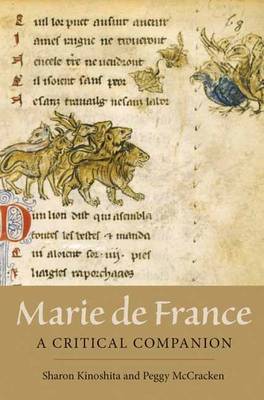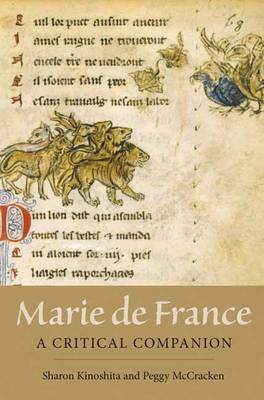
- Retrait gratuit dans votre magasin Club
- 7.000.000 titres dans notre catalogue
- Payer en toute sécurité
- Toujours un magasin près de chez vous
- Retrait gratuit dans votre magasin Club
- 7.000.0000 titres dans notre catalogue
- Payer en toute sécurité
- Toujours un magasin près de chez vous
177,45 €
+ 354 points
Format
Description
Marie de France is the author of some of the most influential and important works to survive from the middle ages; arguably best-known for her 'Lais', she also translated Aesop's Fables (the 'Ysopë'), and wrote the 'Espurgatoire seint Patriz' (St Patrick's Purgatory), based on a Latin text. The aim of this Companion is both to provide information on what can be gleaned of her life, and on her poetry, and to rethink standard questions of interpretation, through topics with special relevance to medieval literature and culture. The variety of perspectives used highlights both the unity of Marie's 'oeuvre' and the distinctiveness of the individual texts. After situating her writings in their Anglo-Norman political, linguistic, and literary context, this volume considers her treatment of questions of literary composition in relation to the circulation, transmission, and interpretation of her works. Her social and historical engagements are illuminated by the prominence of feudal vocabulary, while her representation of movement across different geographical and imaginary spaces opens a window on plot construction. Repetition and variation are considered as a narrative technique within Marie's work, and as a cultural practice linking her texts to a network of twelfth-century textual traditions. The Conclusion, on the posterity of her 'oeuvre', combines a consideration of manuscript context with the ways in which later authors rewrote Marie's works. Sharon Kinoshita is Professor of Literature, University of California, Santa Cruz; Peggy McCracken is Professor of French, Women's Studies, and Comparative Literature, University of Michigan, Ann Arbor.
Spécifications
Parties prenantes
- Auteur(s) :
- Editeur:
Contenu
- Nombre de pages :
- 240
- Langue:
- Anglais
- Collection :
- Tome:
- n° 24
Caractéristiques
- EAN:
- 9781843843016
- Date de parution :
- 19-04-12
- Format:
- Livre relié
- Format numérique:
- Genaaid
- Dimensions :
- 157 mm x 241 mm
- Poids :
- 566 g

Les avis
Nous publions uniquement les avis qui respectent les conditions requises. Consultez nos conditions pour les avis.






